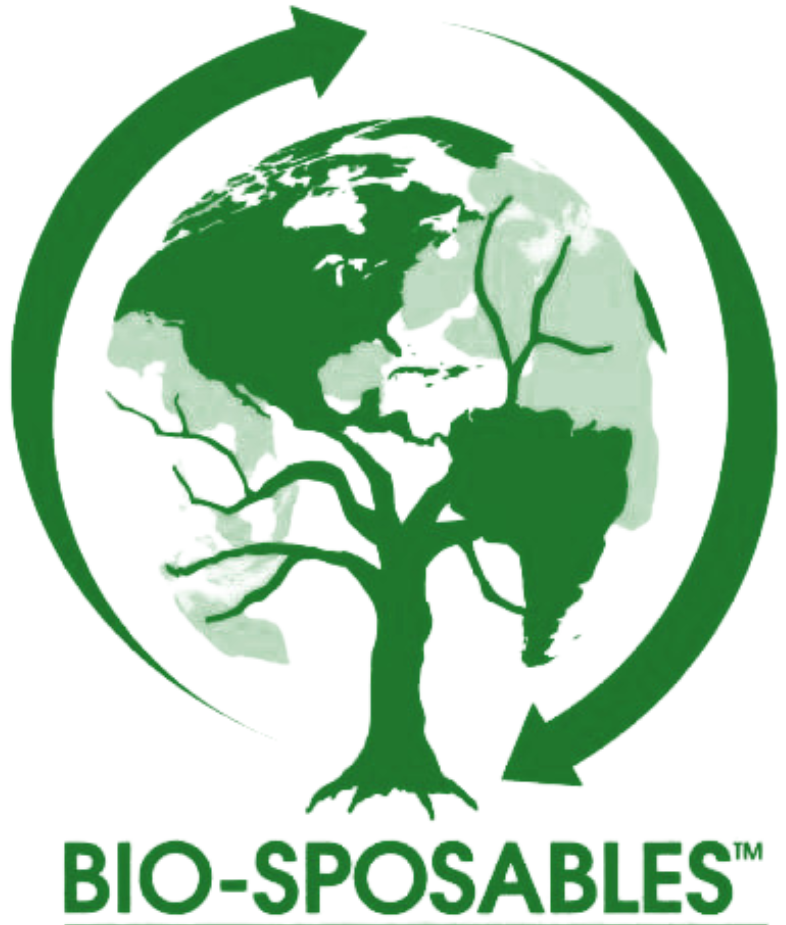The Brand
Why Bio-Sposables?
Biodegradable + Disposables = Bio-Sposables!
We strive to provide easier access to plant based disposables to all Canadians and a streamlined approach to disposable packaging products that closes the loop in our waste management system.
When did Bio-Sposables start?
The idea and engineering of making disposable cups from plants (instead of petroleum oil based plastics or Styrofoam’s) started in the early 1990’s. Being the first of its kind, our compostable clear PLA cups landed in Canada in 2000.
Why should I look for the Bio-Sposables logo?
The brand was created for Canadians, by Canadians. Due to the problem of waste being generated in the food service industry, many disposables could not be recycled and ended up in landfills. Styrofoam cups (which take hundreds of years to break down) was leaching toxic chemicals from our landfills, making its way to our soils and streams. With the addition of many published studies of harmful chemicals being ingested from food and drinks served in Styrofoam or plastic cups, we wanted to start making changes in Canada, one disposable product at a time. Our logo provides a clear distinction between plant based disposables vs. non plant based disposables.
Where is Bio-Sposables located?
We are a Canadian brand eh! We have suppliers located throughout the country. Looking for Bio-Sposables products? CONTACT us today so we can connect you with the closest distributor in your area.
Where can I buy your products from?
We love that you want to be a part of the Bio-Sposables brand! Simply contact us HERE and let us know the City, Province/State you are located in so we can connect you with a distributor in your area.
Products
Does Bio-Sposables contain any plastic or Styrofoam?
Absolutely NOT!
Our goal is to provide Styrofoam, plastic and toxin free plant-based disposable options throughout Canada! Even though our products may look and feel like plastic, rest assured they are all made from annually renewal plant based resources only!
What are annually renewal resources?
Annually renewable resources are crops that are grown and harvested multiple times a year. We use raw materials such as PLA (corn), Bagasse & Molded Pulp (sugarcane fibre, bamboo, reed) and soya beans just to list a few. All of our raw materials take months to be harvested, not years!
What is PLA?
PLA (Polylactic Acid) is an annually renewable plant-based sugar dextrose derived from plants such as cassava, cornstarch, sugar cane and beets. WE use Naturworks’s Ingeo PLA resins. Find out more about them HERE
What is Bagasse/Pulp Fibre?
Bagasse and Pulp Fibre’s can be the byproduct of crops such as sugar cane, bamboo, reed and paper. After sugar is extracted, typically the stalks are burned. Instead we use those raw bio-based materials to manufacture our bagasse and pulp products. Any pulp or paper molded raw materials we use, are certified FSC by The Forest Stewardship Council. Find out more HERE
What about the custom logo on your products?
Yup, we thought about that as well! We can assure you that all of the inks and dyes found on our products are fully plant based vegetable dyes, annually renewable materials, and are non toxic. No need to worry if you decide to do a customized print with us, it will still break down in the industrialized compost leaving no logos behind!
Can I eat your products?
We rather you eat FROM them! They are not edible or intended for human consumption. They are meant to be disposed of in an industrialized composting facility.
Composting
What is the difference between biodegradable and compostable?
Biodegradable, in the most simplest term, means to break down. However, products that are labelled biodegradable do not provide a specific timeline of how long it takes to breakdown.
Compostable means the product will break down but in a specific time, which is usually within 12-15 weeks. Compostable timeframes are usually determined by a third party who test products and certify them to be truly compostable (example: ASTM D6400 EN 13432 )
Which certifications does Bio-Sposables products have?
BPI & OK Compost are the two main compostable certifications we use. For more information on product, you can check them out HERE
Is the disposing process different from a standard plastic product?
Yes! Not all plastics are recyclable and they must be cleaned from food waste and grease in most cases. Coloured plastic disposables, lined plastic coffee cups, and mixed materials pose problems to recycling facilities, and are all usually filtered out and shipped to landfills instead.
Certified compostable items should be put into an industrialized compost, food scraps and all. Learn more about this distinction HERE







